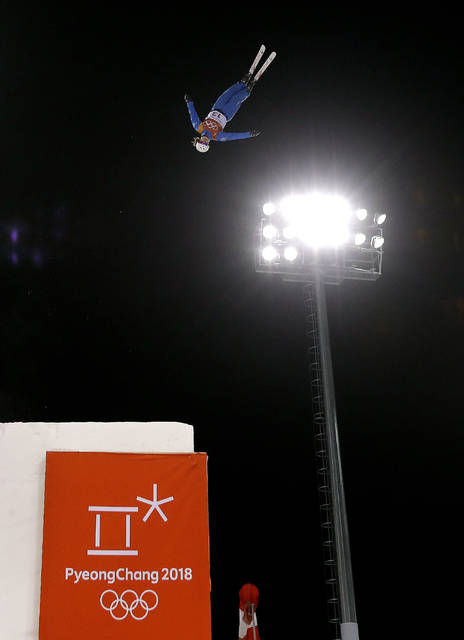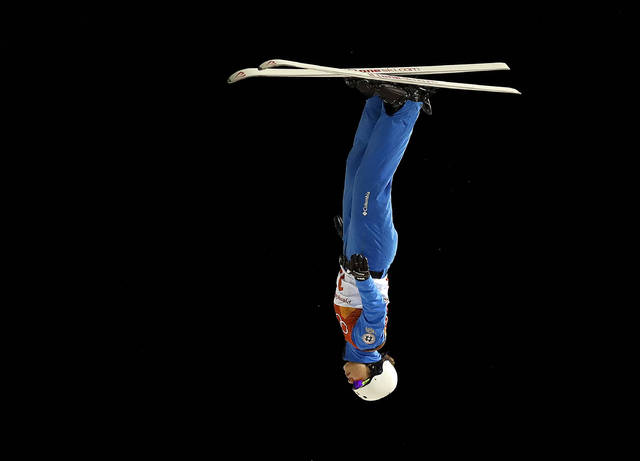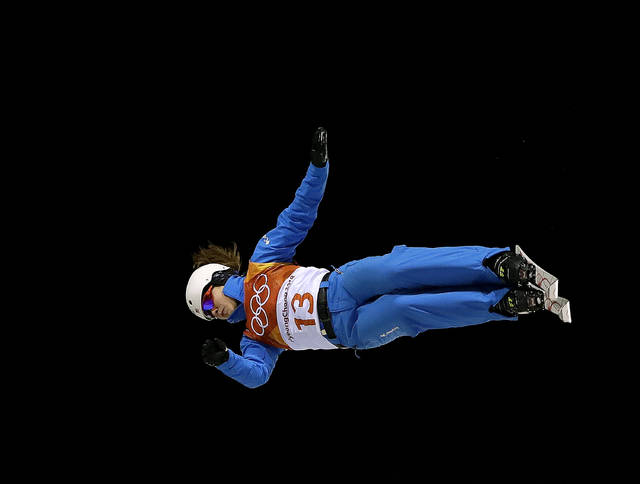PYEONGCHANG, South Korea — American freestyle skier Ashley Caldwell admits it: She loves the risk because she loves the reward.
On Thursday night at the Olympics, there was no prize for her daring.
The foremost envelope-pusher in the dangerous sport of aerials failed to cleanly land either of her triple-flipping jumps in qualifying. She failed to crack the top 12, and will watch Friday’s final from the sidelines. It’s a loss for her, but also for the sport, where Caldwell is the only jumper in the field who consistently tries triples, whether in qualifying or the final.
“When you seize the reward, everyone’s all happy, dandy, go-lucky,” Caldwell said. “And when you don’t, either it hurts, or it hurts … physically or emotionally, and this is an emotional pain.”
A physical one, too. Though Caldwell was reluctant to use it as an excuse, she was victimized by the harsh winds that have whipped through the action park all week. Two days before qualifying, a swirling wind caught her during a practice jump and threw her off line, and she landed hard on her shoulder.
U.S. coach Todd Ossian said it was remarkable Caldwell was able to return in time to compete.
“She runs on adrenaline,” Ossian said. “Certainly, with her (degree of difficulty), she has to. She was really jumping amazing.”
Caldwell started going big when she was a kid and realized she could do everything the boys could do and more. After two trips to the Olympics, where she finished 10th both times, she decided to take the triples-or-nothing tact in a sport where the vast majority of women try, and often win, with doubles.
Last year, Caldwell won the World Championships by becoming the first woman to cleanly land a triple-flipping, quadruple-twisting jump in competition.
“It was the first time I had every coach come up to me and shake my hand before the score even came up,” Ossian said.
Since then, her message hasn’t wavered: There may be more consistent jumpers out there, but only one takes the all-or-nothing path every time.
“The nice thing about it is, if you have a result, the impact you’re trying to make can be bigger,” she said. “If you have a gold medal and you talk about who you are, what you represent, you have more clout. I wish I could share my story more about how I push myself, but sometimes you need that victory to be able to try to express your idea.”
She’s only 24 — young enough to get another chance on the sport’s biggest stage.
“She’s the world champion and she’s done the hardest trick in the world,” Ossian said. “She’s certainly not done. You’ve got a lot left to see.”
———
For more AP Olympic coverage: https://www.wintergames.ap.org




